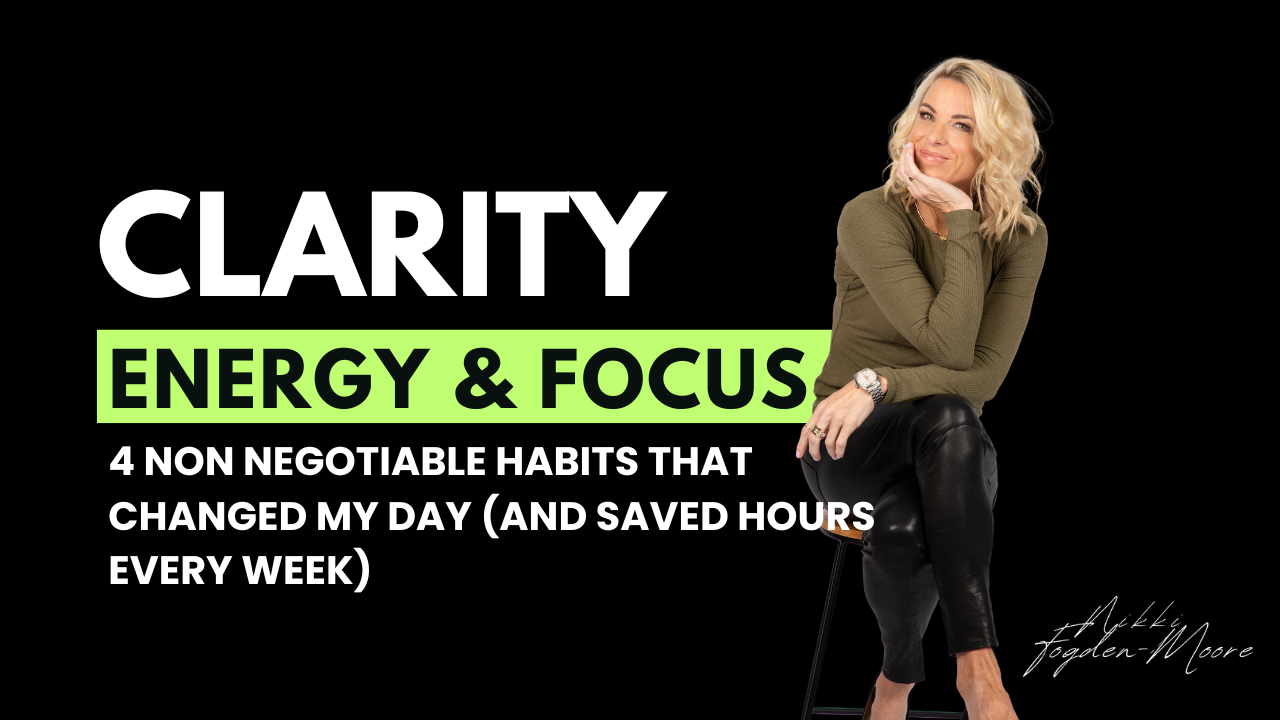TVC074 Bullying In The Workplace With Tim Capelin
Apr 29, 2017
 TVC074 Bullying In The Workplace With Tim Capelin
TVC074 Bullying In The Workplace With Tim Capelin
Bullying and intimidation is not just in the school yard.
In this episode I chat to leading workplace and employment law expert Tim Capelin from Piper Alderman about recognising the signs of bullying in adults, what to do if you're facing this situation and steps to change mindset and approach around supporting your family, friends or colleagues when under pressure.
Tim has over 25 years of experience; his commitment is to help people achieve greater success, and to do that through his expertise in employment law.
I like being able to assist on both sides of these matters. Most commonly I'm assisting employers to get the most out of their employees, and assisting executives approach their employment as they approach other commercial negotiations that they deal with and get the best out of it for them, which usually has a win for both them and the company.
There's been a lot of coverage lately about confidence and career development and more recently in Australia how to tackle bullying in the work environment. This is a timely episode. Bullying is not just child's play - and more often than not it's the emotional forms of intimidation that are causing lack of performance, confidence and in worse cases extreme levels of stress and depression.
I have asked Tim to share his insight and join the discussion around
- Identifying the signs
- How to take measured steps to ensure you can get help if needed
- Observe your own behaviour to be considerate of others.
What are the signs of workplace bullying?
How would you describe some situations that you've certainly had come across your desk?
Tim: Bullying for adults in many respects is not different to bullying for children in that the experiences emotionally and physically are probably very similar. Certainly the emotional impact of it can be very significant.
- It usually arises from feelings of one party using their, particularly in the C-suite example, their positional power over others whether it's a CEO or senior manager abusing their power to impose it upon the executives that report to them, or the CEO copying the behaviour possibly from the chair.
- They often say whether you're an executive or a CEO, it's very lonely at the top. That possibly highlights or exacerbates the feelings when people are under stress and being what they perceive to be being attacked by their boss.
Nikki: I think what's interesting is a lot of talk about functional and strategic hard skills when we go through career development, but what we lose a lot of is our personal skills when we gain more responsibility in the workplace.
Dealing with emotional matters become much more difficult because there's many more layers on top of it than there would normally be. Let us also be clear that this is right through the organisation.

I know people that actually when they wake up in the morning, they have heart palpitations, they're drenched in sweat, and they're actually afraid of going to work with exactly the same emotional repercussions as kids are afraid of going to school.
We have people that are in really good jobs and really good positions actually feeling anxiety because of people around them in the workplace and not being able to deal with these emotional issues. They're having physical repercussions and physical results due to that anxiety level as well.
Tim: Absolutely, you can see that happen. It can be compounded by circumstances outside of the workplace as well.
What happens when people are feeling intimidated at work?
Tim: People can become vulnerable from what happens in the workplace. In other circumstances, they may have been more resilient, but because of family circumstances, individual, financial circumstances, or something else external to the workplace, their resilience is broken or at least reduced for a period. That's where a variety of help can really assist them.
Nikki: I think that's what one of the main reasons I had you on the show today and one of the main drivers with my podcast is creating a roadmap for people to assess where they sit in this chaos to calm matrix. Survival mode: where it's high effort to just get up and do your life and your job daily, right through to an effortless mode where you're aware of a situation, you have a game plan in place.

We want to move people through to knowing what to do when maybe their lack of confidence due to home life has led them to be more vulnerable in the work environment with changes and things. Here's some steps to getting back on track and finding out what to do next.
Step One: Identify The Triggers
Identifying some bullying behaviours and tactics so people can really take the guesswork out of it.
For example:
- Verbal abuse: Are you being spoken in a way that's professional or you're spoken in a demeaning manner.
- Information Withheld: Are you being given the information you need to do your job or are you being only given a limited amount of information which is setting you up to fail?
- Belittled in a public setting: When you're in group situations, so you're in the executive team meeting, are you being belittled for your opinions?
- Constant Criticism: Does the criticism seem constant and is there no positive feedback being received? Are you being given impossible deadlines so you're set up for failure, and so on?
- Shut Out: Are you being ignored, excluded from meetings, documentation and vital areas to do your job well?
Step Two: Perception vs Reality
These things sometimes can be perceptions that don't necessarily reflect reality.
Getting over this is sometimes having someone that can assist you to say, "Okay, this is what I'm seeing. What's your thoughts on what I'm seeing? Am I perceiving it correctly or is there another way of perceiving it?"
Find someone to talk to that is safe, confidential and can help you get perspective. Keep a journal, write elements down and stick to the facts and stats.
It helps you take that conversation out of your head and feel trapped - especially where you're being bullied quietly because the biggest thing about bullies is they often are very clever at what they do, especially in a leadership environment.
What Tim and I want you to do is step out of the storytelling side of it and try and move into a more practical and factual elements, where you can actually start to get some support and ascertain what things are really occurring that you can act upon.
- How to protect yourself and communicate in a way that people understand you need help because often in these environments, people feel there's nowhere for them to go to talk because they don't feel safe.
Step Three: Awareness at ALL levels
If you're listening to this, this isn't just for C-suite. No matter what the role title you hold anyone can be a victim to bullying behaviour than can often go unnoticed and the more junior the staff the harder it is to speak up. The more senior your role - the challenges arise on who to bring this matter to and how to really navigate your way out of a negative situation.
- Understand where you sit in the workplace in terms of your confidence and how you're working with your teams, your seniorities, and also those that report to you because it can be through the line, and then acknowledge the areas that you feel are really explicit.
- Figure out who can you talk to next and what's a game plan, so identifying a safe space either inside the organisation or a helpline.
Most large companies now have helplines for discussing things in an anonymous way where you can actually get traction on whether something's just an idea or it's actually occurring, so you can have advice.
The most important step is you need to talk to someone about it, and that person has to be safe and in confidence.
Tim: They often call it an EAP system, an employee assistance programme, which often is and usually is confidential.
All the company gets is information of the number of calls that they've received into the helpline without details of who's calling and what the details are about. It usually is a safe place to start, and those people can often direct you to other forms of assistance if you need it.
Step Four: Acknowledge How You Feel
You have to be a martyr and hold your head high and go in for battle every day because it will wear you down, it will be exhausting.
The most important thing is acknowledging when there's a problem and then being able to identify how that's affecting you. The best way to do that is actually to write things down as they occur. Start listing down activities as they occur, dates, conversations, phone calls so that you've got facts, again, rather than just stories in your head. Sometimes most people are unaware of their behaviour
Tim: Sometimes we talk about bullying being conducted by a person that actually intends to hurt, but that isn't always the case. Sometimes executives, senior executives follow the models that they've seen as they've been growing up in their businesses or in other businesses.
In a past era, the bully was really the role to follow. A CEO was a person that really just dictated to others, demeaned others, imposed their will on others without any real regard as to the impact it would have. That used to be the model. It obviously no longer is and it is completely ineffective these days.
Sometimes people are unaware of the impact of their actions. In some instances, bringing the issue to the awareness of the bully can actually have a significant effect and bring about change.

Step Five: Leading By Example
It all comes back to being the CEO of your business and your life as an individual. Whether you're answering the phones at reception, you're in a general management position, you're in finance, IT, whatever role you have in life and at work, remember not to label anyone else yet because sometimes it's communication issue.
Secondly, most bullies are insecure themselves. They're not sure about their job or they just don't know any better. Before you go down a path, it's very important to acknowledge and actually assess what's actually happening and keep it above onto facts and stats again.
- Avoid gossip and be pragmatic and act with integrity.
- Make sure you privately discuss it with someone that has the experience and the understanding to help understand if that actual behaviour is just because someone doesn't know better.
Tim: That analytical stage is really important. That then allows you to move to your planning phase of what do I do about it.
- I've analysed it.
- Am I going to be able to make things change either by changing those around me or changing myself?
- If not, what are my next steps to protect myself and get the best outcome?
What To Do If You Are Are Being Bullied Right Now?
You've acknowledged there's a problem:
- Reach out to your EAP (employee assistance programme)
- If you're really struggling mentally then please go and see your GP or reach out to an organisation like beyond blue. There are a variety of other mental health support systems and your GP will be able to assist them in that area.
- Get advice from an executive coach, lawyer, seek expert trusted opinion.
- Use trusted confidants, whether that's coach, lawyer, close executive friend outside of your business that can assist you.
- Three, don't always expect that a just outcome will come simply because you persist. We live in political environments, and sometimes you have to accept the just outcome's not going to actually come about how you may expect, and you need to make the right decision recognising that.
The landscape of life isn't always fair, but what's most important is you do what's right by you.
Your health and your mental health is more important than staying in a job that is destroying you.
It really has to be creating that culture. Having open communication as a common way of how the organisation operates is so vital and can be so productive and effective.
Having someone on the show like Tim who has a deep connection to assisting people at all levels and utilising years of experience is a great asset. Feel free to drop a comment in confidence or reach out on the links below. You can also contact Tim directly should you need to on [email protected].
I hope this episode has provided some pragmatic and supportive advice for any of you who may be facing uncertainty at work due to bullying, or for those of you who are building a culture for your company, where interpersonal communication, trust and integrity are paramount.
We'd love your feedback.
More on the Vitality Show CLICK HERE
Please leave a review on iTunes - we'd love that too
Yours in Leadership and UltimateVitality

___________________________________
Useful Links
Tim Capelin LinkedIn
Bully Zero Australia
One Wave Podcast Episode






